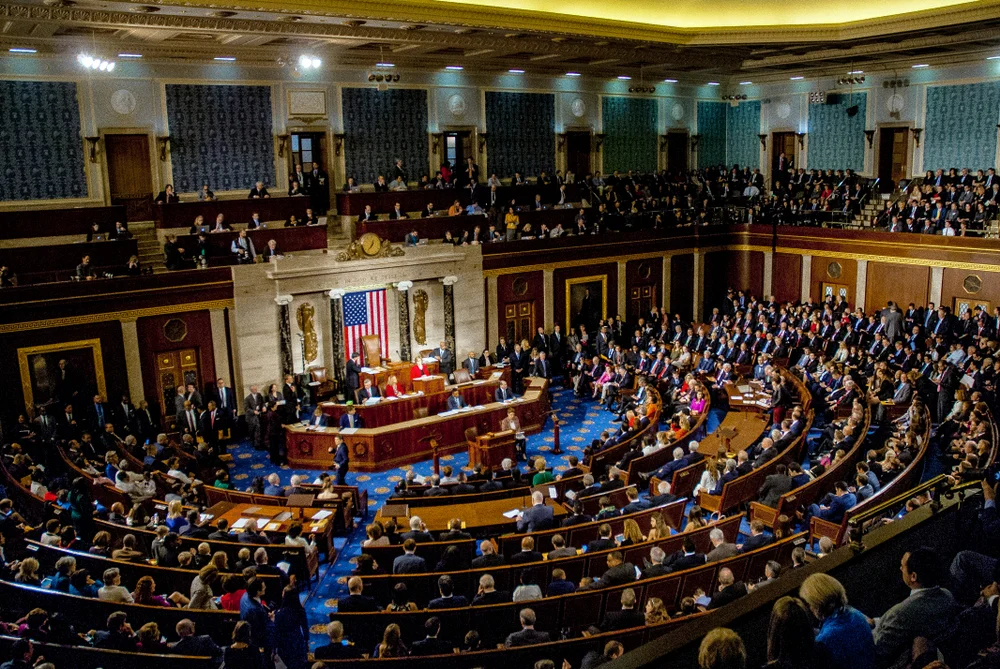
The “Baneful Practice of Secessions” Returns to Texas
Secession is a strategy employed by political minorities when they are unable to get their way through the use of ballots.
The standoff in Texas was resolved with Democratic state legislators’ return to Austin. And it seems that Texas will create five new legislative districts that are favorable, though not ironclad, in the Republican Party’s direction. However, it appears that this was merely the first salvo in redistricting wars that may embroil several other states. The Texas legislators only agreed to end their secession from the state if California eliminated its independent redistricting commission and sought to gerrymander its own congressional districts to counteract the Republicans’ map in Texas. California Governor Gavin Newsom is moving forward with this plan, which would require a special election in November to change the state constitution.
The Texas legislators’ secession is a bad strategy and is likely to do more harm than good. This is the case for at least two reasons: its long-term effects on redistricting are likely to be exactly the opposite of the Democratic Party’s goals, and it is an extraordinary tactic that should not be deployed for light and transient causes.
Start with the first claim: the likely long-term consequences of this chain of events. What problem are Democrats looking to address? As William Galston wrote in 2023, it is a common view (advanced by many in the media) that the Republican Party enjoys an unfair structural advantage in congressional elections. By “fair,” we generally mean that each party should receive approximately the same percentage of seats in the House of Representatives as it received in the popular vote. For several cycles in the 2010s, this did not transpire. In 2016, for instance, Republicans received 49.1 percent of the overall popular vote in House elections (still a plurality, since Democrats only received 48 percent as a result of third-party voting), but won 241 seats, a substantial majority.
This type of outcome – in which one party receives a larger proportion of seats in the House than its popular vote share would entitle it to receive – causes many to blame gerrymandering. Republicans won more seats in 2016 because the districts were strategically drawn, according to this view. This is antithetical to “our democracy,” the argument goes, and we must fight fire with fire.
There are two problems with blaming Republican gerrymandering for this type of outcome. First, it is just as likely that “efficient distribution” of votes is the culprit. The concept of efficient distribution is straightforward. In single-member, “first-past-the-post” districts, whoever finishes in first place wins all of the representation – the single seat chosen by the district. Whether the party wins that seat by 1 vote or 100,000 votes is irrelevant to the overall outcome.
In this type of system, parties will be rewarded for distributing their votes most efficiently, winning the largest number of seats by the fewest number of votes possible. By contrast, parties would be penalized for racking up wide victories in safe districts where hundreds of thousands of votes were “wasted” on seats that were already in hand.
It is just as likely that Democrats did not receive a proportional share of seats in the House after the 2016 elections because their votes were inefficiently distributed. They won urban districts by wide margins, while Republicans won their races by thinner margins.
This helps to explain the second problem with blaming Republican gerrymandering: Republicans’ advantage has essentially disappeared in the last several election cycles. Compare the 2016 outcome referenced above with the 2024 outcome. Last year Republicans won a larger share of the House popular vote than they did in 2016 – 49.8 percent to Democrats’ 47.2 percent – but won a narrow majority of 220 members. In fact, if either party enjoyed a structural advantage in the last cycle, it was the Democratic Party, not the GOP.
In sum, in the aggregate, any unfair distribution of seats in the House is better explained by inefficient distribution than by gerrymandering, and any Republican structural advantage that once existed has essentially disappeared in recent years.
What are Democrats willing to give up to combat this phantom menace to democracy? In California, they are poised to scrap the state’s independent redistricting commission, a reform that progressives have long favored. New York’s Democratic governor, Kathy Hochul, now favors abolishing the state’s independent commission and gerrymandering the state’s congressional districts to favor Democrats. Illinois Governor JB Pritzker also endorses gerrymandering his state’s congressional districts to favor Democrats. Unfortunately for him, the Illinois map is already a model of efficient distribution without much juice left to squeeze (Republicans won 47 percent of the House vote in Illinois but won only 3, or 17.6 percent, of the state’s 17 House districts).
The long-term costs of Democrats’ retaliation are, in sum, likely to outweigh the short-term costs. Both parties clearly engage in strategic redistricting, and in the last several cycles, neither party has enjoyed a consistent or sizable advantage in the House as a whole. This is a pittance to receive in exchange for abolishing redistricting commissions and appearing hypocritical, denouncing gerrymandering in Texas as a threat to democracy while practicing it in other states.
The most alarming characteristic of the redistricting fight in Texas, though, is the nature of the resistance. This is not the first time this century that Texas Democrats have resorted to what James Madison called “the baneful practice of secessions” to obstruct the state government. Texas’s state constitution requires a 2/3 majority to constitute a quorum in the state legislature. In 2003 and 2021, Texas Democrats, though in the minority party, fled the state to “break quorum” and prevent the state legislature from functioning.
The frequent use of this tactic would certainly have alarmed Madison. In Federalist 58, Madison objected to rules requiring a supermajority for a quorum. With such rules, he argued, “the fundamental principle of free government would be reversed. It would be no longer the majority that would rule; the power would be transferred to the minority.” More ominously, he continued, “it would facilitate and foster the baneful practice of secessions….a practice subversive of all the principles of order and regular government; a practice which leads more directly to public convulsions, and the ruin of popular governments, than any other which has yet been displayed among us.”
Secession is a strategy employed by political minorities when they are unable to get their way through the use of ballots. Its use in Texas, now for the third time this century, may offer sufficient encouragement for the state’s voters to heed Madison’s advice in The Federalist and reform the quorum rule. Its use by members of the Democratic Party may remind voters that resorting to forceful opposition to the government is a bipartisan, and lamentable, feature of our present politics.
Joseph Postell is an associate professor of politics at Hillsdale College.
Constitutionalism

Amicus Brief: Hon. William P. Barr and Hon. Michael B. Mukasey in Support of Petitioners
Former AGs Barr and Mukasey Cite Civitas in a SCOTUS Brief

Rational Judicial Review: Constitutions as Power-sharing Agreements, Secession, and the Problem of Dred Scott
Judicial review and originalism serve as valuable commitment mechanisms to enforce future compliance with a political bargain.

Supreme Court showdown exposes shaky case against birthright citizenship
Supreme Court will hear challenges to Trump's order ending birthright citizenship, testing the 14th Amendment's guarantee for babies born in America.

The Administrative State’s Sludge
Congress has delegated so much power across so many statutes that it’s hard to find a question of any public importance to which some agency cannot point to policymaking authority.
.webp)
The Roberts Court Invokes Congress and the Constitution
The Court's message is that ultimate policy authority lies in the hands of Congress.


.avif)










.avif)



